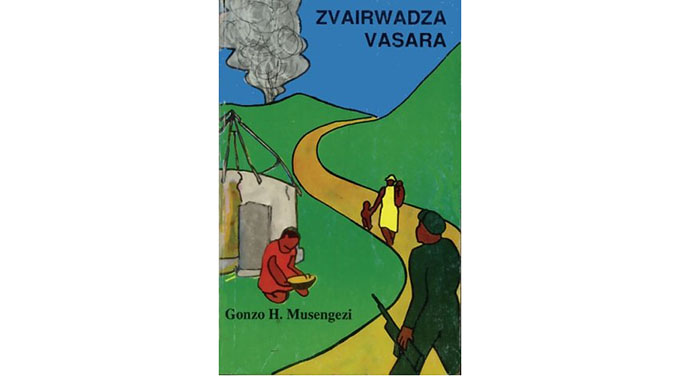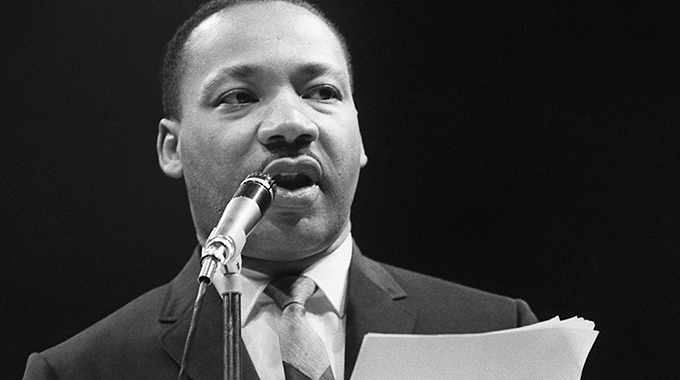Ode in ‘Memory of the Future’
Elliot Ziwira @The Bookstore
“If I know who I am, I will be free”, so reasons the unnamed narrator in Ralph Ellison’s “Invisible Man”. So certain is he that the knowledge of the self is the beginning of freedom, for a borrowed garment is never a one-fit-all apparel. The laboured gait of the borrower will always betray him. There is always darkness in a tunnel, yet the light always beckons at the end or at the source, so one has to decide whether to retreat or move on. He has to use the knowledge of where he is coming from to determine his progress into the unknown, instead of remaining rooted on borrowed space. He has to know his own roots for him to uproot those alien to him for the sake of his future and that of his people, because tomorrow’s plants are in today’s seeds, whose fertility is steeped in yesterday’s soil.
You might be wondering gentle reader where this is headed, but hold on and observe a moment of silence for one who knew, from the cradle to the grave, who he was; a cultural icon par excellence—Vimbai Gukwe Chivaura, who passed on on November 24, 2015. May his dear soul rest in eternal peace!
This installment is not entirely for him, for all instalments at The Bookstore are always about him, and it is not The Bookstore’s duty to write obituaries, neither is it our culture to sing eulogies, but simply to relive them in memory of the future, which Gukwe so much cherished by dedicating his life to the discernment of the cultural mores and values that shape the people of colour.
A mere mortal like all of us, he knew that his time would come, but that it would not pass in vain is what he lived for, so he immortalised himself.
Culture and religion are thorny issues, yes, and all of us are free to choose what we believe in, but that choice should not compromise the well-being of others, and it is this that the cultural icon realised. The Western education that he mastered in the imperial master’s abode up to PhD level, failed to change his African intellect and worldview, as is the case with Jean-Marie Medza in Mongo Beti’s “Mission to Kala” (1957).
He remains (for he refuses to die) resolute and steadfast in his belief in the liberating power of language in a world where mastery of foreign languages is in vogue, in the same way that Ngugi wa Thiong’o does as he opts to use his Gikuyu mother tongue as a vehicle to ferry the societal mores and values that shape the Motherland’s experiences.
Like a cruise missile, he would strike you in the face with such powerful conviction that leaves you aghast and you cannot help agreeing that indeed: “Murungu haasi munhu”, (the Whiteman is not a paragon of African virtues). His belief in the sanctity of the family unit as enshrined in the symbolic representation of the tripartite heath in the African cooking hut (standing for the father, mother and the children); his conviction that Europeans did not bring God to Africa, but their own Jesus Christ and Christianity, and that Africans have always worshipped in their own way as enshrined in their religious beliefs; make him a true ambassador and professor of the values that shape our destiny as a people.
This conviction finds base in Ignatiana Shongedza’s “Kagurukute Ngoma YaMutota” (2007), “Secret Lives” (1964) by Ngugi Wa Thiong’o , Charles Mungoshi’s “Walking Still” (1997). Vimbai Gukwe Chivaura’s contribution to the national discourse far exceeds any accolade that can be bestowed on any man, living or dead, because he is a teacher, whose legacy remains etched in many a student, who gave him an ear and continue to do so, consciously or unconsciously, because a word, no matter who says it, finds purpose in the way it is said; and Gukwe knows just how not to mince his words.
A true African to the end, he certainly knew that the future beckons for direction from the present. The Bookstore celebrates your life through your protégés, whose books and words of wisdom will continue to grace our shelves in memory of the future that you cherish.
I vividly remember what you said to me that other day in an interesting debate on orature and literature in Memory Chirere’s office at the University of Zimbabwe sometime in May this year: “Elliot uri kufunga seMurungu. Regera kufunga seMurungu.” When you gave me that mischievous and yet infectious smile of yours, I realised that indeed I was thinking like an alien gangster from the West, and I vowed that I would never again think like an alien fundi.
Tread well son of the soil. Yours was a life well lived.
Gentle reader, the line “in memory of the future”, is a borrowed one, from a man of letters; journalist, poet and blogger, Stanely Mushava, whose poetry anthology “In Memory of the Future”, published by Pro-Faith Press and available on Amazon, reminds us all of the need to sow our seeds with the future in mind. It is interesting to note however, how religion functions in this miasmic world, because the luminaries in this installment, Mushava and Chivaura, subscribe to different religious beliefs, yet the future is ensconced in their convictions.
Religion, according to Durkheim (1988), is “a united system of beliefs and practices relative to sacred things, that is to say, things, that set apart, and forbidden beliefs and practices, which unite into one single moral community called a church; all those who adhere to them.” He adds that culture is the cumulative deposit of knowledge, experience, beliefs, religion, material objects and possessions acquired by a group of people in the course of generations through individual and group striving.
Religion as a product of culture follows cultural dictates as determined by a community, which strives to take itself into the future. Generations, past and present, have a way of determining the future and it is this aspect that Mushava, the pastor-poet purveys in the anthology “In Memory of the Future” through a combination of symbols, metaphors and biblical allusions.
As a proponent of Christianity, the poet subscribes to the religious poetry championed by John Milton, William Blake, John Done, Gerard Manley Hopkins, Dante, T.S Eliot, Geoffrey Hill, Oscar Wilde and William Wordsworth. The influence of these poets is clear in the poet’s collection (which could have made Chivaura say “Ari kufunga seMurungu); whose fervent call for the heavenly riches as opposed to carnal worship and deification in today’s churches is as appealing as it is didactic and evocative. Despite his standing as a Christian, the poet is not blind to the contractions that religion brings, which he candidly pokes at in the title poem “In Memory of the Future”, “Church Girls”, “Hypochristians” and “Love and Conviction”.
Man, the poet implores, should not be controlled by his instincts, but by the knowledge that there is a divine power that controls his destiny, no matter how hard he may try to extricate himself from his own entanglement. He has to give all up to the Lamb of God—Jesus Christ as the poet Geoffrey Hill intimates in the poem “Lachrymae Amantis” in “Tebrae: “So many nights the angel of my house/has fed such urgent comfort through a dream/whispered “your lord is coming, he is close.”
Oscar Wilde and George Herbert also express this view of the presence of God in life’s travails in “The Ballad of Reading Gaol” and “Easter Wings” respectively.
In “Blood on Canvas” Mushava implores Man to desist from being the target of his own salvoes in the form of deceit, hypocrisy, chicanery, avarice and oppressive cultural mores. Like Herbert in “Easter Wings”, the poet believes in the cleansing effect of Resurrection as he reminds his fellowmen of the blood that Christ shed on the Cross. He warns: “I will return with blood and canvas/And reconfigure man’s tainted visage/After the image of the Lamb of God.”
To the poet love is only ephemeral, lustful and carnally inclined if it is devoid of God’s love, so one should always strive to find favour in the “Lamb of God” through being born again and living a sin free life. The poems whose musical allure, heightened by a well-controlled metre, consonance, assonance, thematisation as well as repetition; a rhythm steeped in contrived punctuation and language, linger on in the reader’s ears long after the beat has died down, lends a feather in Mushava’s cap as a poet to watch in the not so distant future. He really has arrived on the poetic landscape with gargantuan strides.
As the future beckons, so does the poet as an artist playing his role as a preacher, teacher, and philosopher; implore his people to consider the detrimental nature of their choices on future generations if they do not seek discernment from the divinity of their maker.








Comments